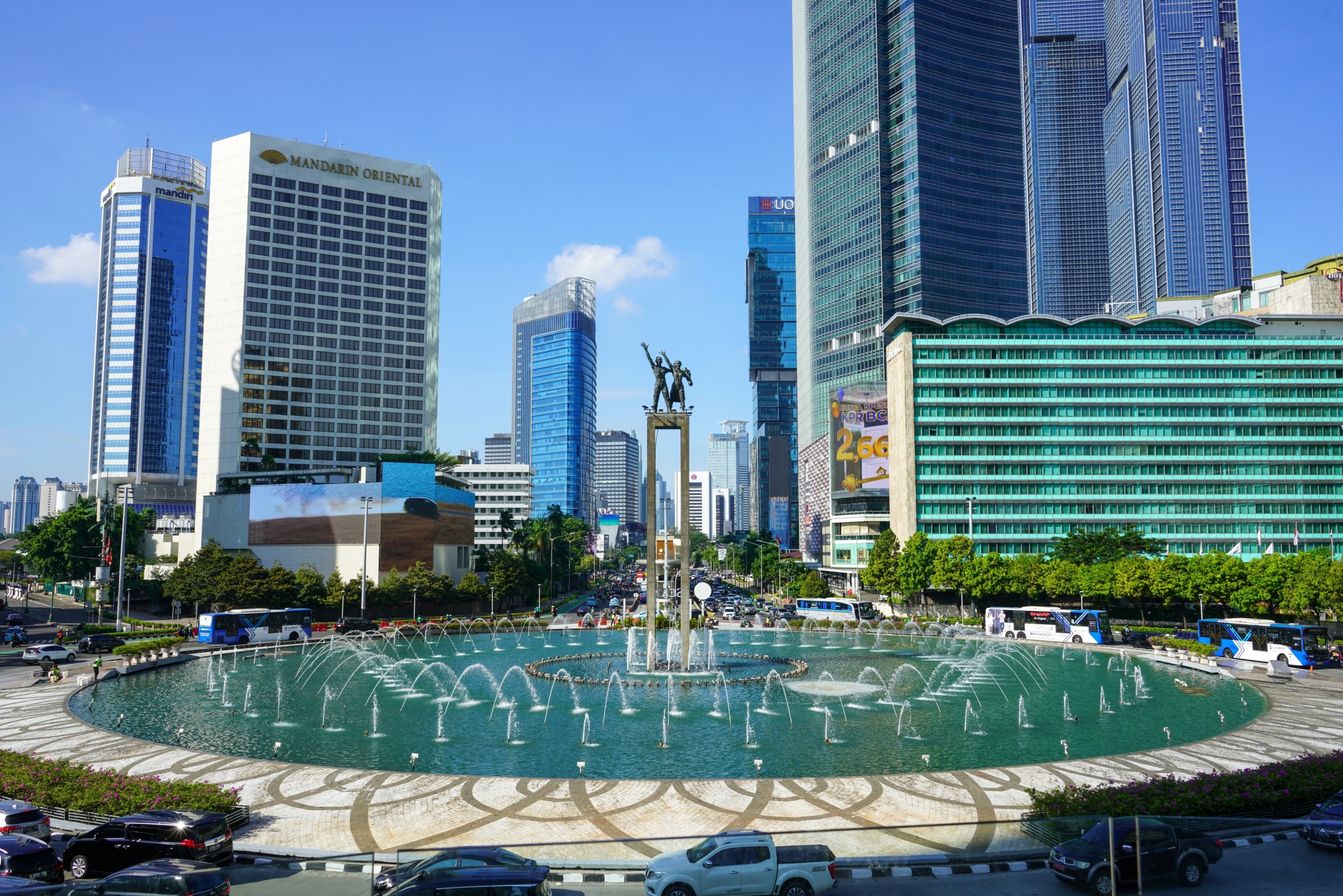Your bags are packed, your house is empty, and you’re waiting for the taxi to take you to the airport. Yep, you’re all set for your next adventure, and your next destination is Jakarta, Indonesia!
Moving to a new country can be daunting. Moving to a country you’ve never been to, with a population of over 365 million people, and as the largest Muslim country in Southeast Asia, can feel even more overwhelming. You don’t know much about the people, the culture, how things work, and you don’t have any friends there yet.
Even though this isn’t your first move after years of hopping from country to country as an expat, the nerve-wracking feeling of adapting to a new environment never really fades. But don’t worry! Here are our key takeaways to help you navigate life as an expat in Jakarta, Indonesia.
Finding a Permanent Home – Lower Your Expectations!
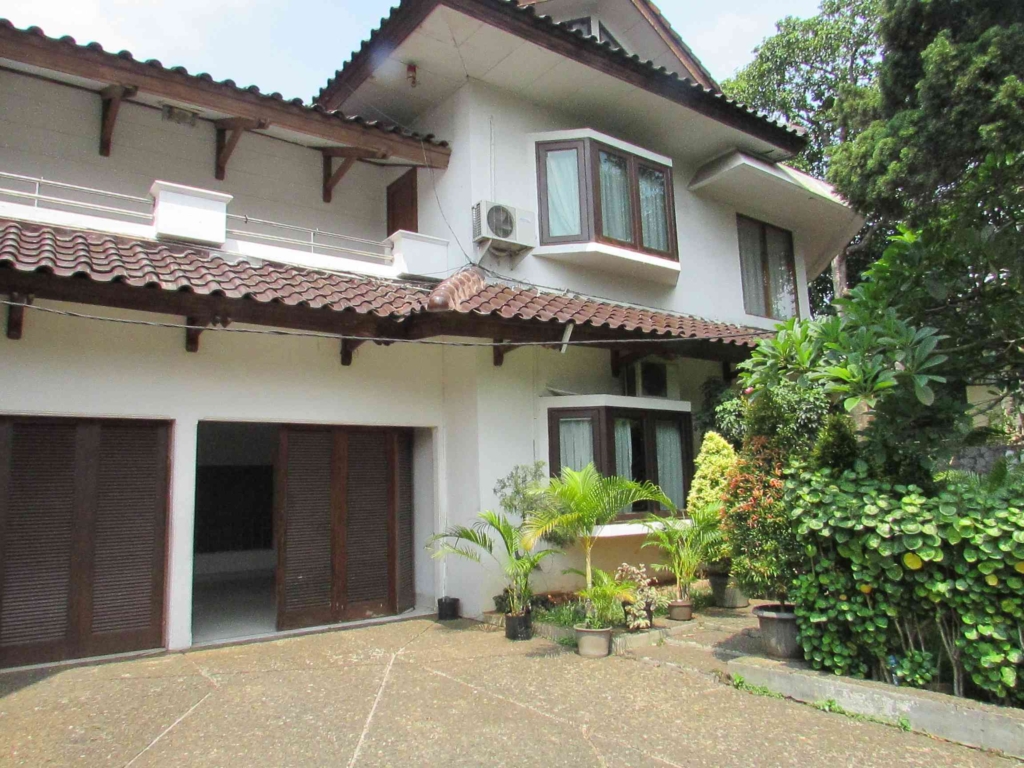
When searching for a permanent home for your family, the first thing you should do is lower your expectations!
So, what can you expect when looking for houses in Jakarta?.
While many major cities in Southeast Asia are modern and dynamic, Indonesia was a bit of a late bloomer in terms of infrastructure and housing development. The government only started seriously addressing public transportation in Jakarta less than a decade ago, and housing development has been, to say the least, hasn’t always been the best-planned.
Planned housing developments for expatriates are still limited, although some property investors began developing gated and compound houses for the expat community in the early 2000s. However, the growth of such developments hasn’t increased significantly over the years. Due to the high costs of land, construction, and maintenance, it’s not a highly profitable business, making it less attractive for property investors. As a result, the housing options are fewer than you might expect.
If your housing budget is around USD 3,000-3,500 per month, your options will be limited, and the quality of houses might not meet your expectations. However, if your company provides a housing allowance above USD 6,000 a month, your options expand significantly. You’ll be able to find homes that meet your standards and expectations. Just remember, a higher budget doesn’t necessarily mean you want a bigger house – it’s about finding a home that fits your family and taste, in the right location.
Local House Design, Neighborhood Quirks, and Cultural Considerations
Jakarta is a large city, but business hubs are concentrated in South and Central Jakarta, which is where most expats live. The streets in residential area of South Jakarta are often narrow, heavily congested, and sometimes only wide enough for one car. You’ll also find yourself neighbouring local Indonesian warungs (small shops), which can feel like a stark contrast to the “ideal” expat neighbourhood you might have imagined for your family.
Keep in mind that Jakarta is notorious for its traffic, and proximity to work or school isn’t measured by distance but by travel time. It’s crucial to choose a location that’s either close to your workplace or your children’s school. If you’re lucky, you might find a house that’s conveniently located between both, but in many cases, either you or the kids will have to endure a long commute.
Homes in these areas are often designed with local preferences in mind, which means smaller gardens, smaller kitchens, and large bedrooms. You’ll also find spacious service areas, as it’s common for local families to employ live-in household staff.
Indonesians don’t spend much time in their gardens due to the heat, humidity, and mosquitoes. As a result, many houses have limited or no garden spaces, focusing more on indoor activities. Social gatherings are typically held indoors, which is why homes often have large living and dining areas.
A private swimming pool?? That’s a luxury not every house offers.
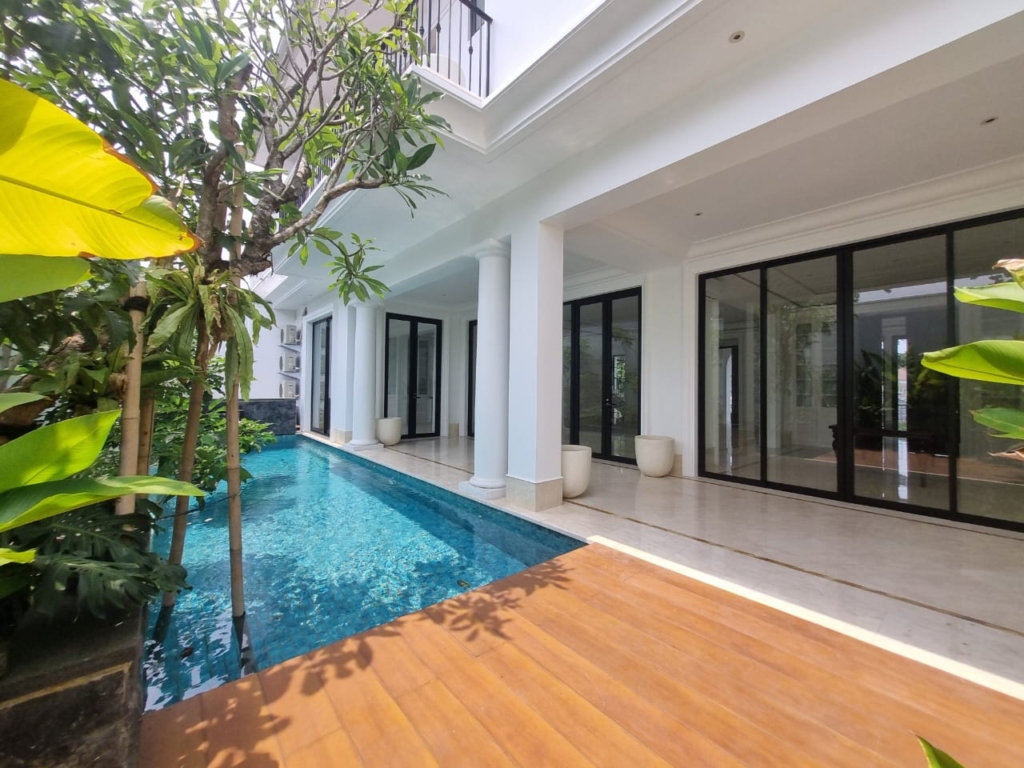
Houses for rent typically come unfurnished or semi-furnished. The landlord usually provides built-in wardrobes in the bedrooms and a basic kitchen set. White goods such as a refrigerator, stove, oven, water dispenser, washing machine, and dryer are generally included. However, all other loose furniture and electronics are the tenant’s responsibility. Some homes may already have blinds or curtains installed, but in many cases, you’ll need to order them yourself.
Another important thing to keep in mind is that Indonesia is a predominantly Muslim country, and Jakarta is often referred to as the “city of a thousand mosques.” This means you’ll find mosques on nearly every corner of the city. If you’re hoping to find a ”quiet” home where you won’t hear the call to prayer at 5 a.m., that may be close to impossible. If you’re sensitive to noise, I highly recommend checking the surrounding area and ensuring the windows provide some level of soundproofing before signing that rental contract. Otherwise, you might find yourself frustrated for the duration of your stay.
Duration of Rental Contracts and Long-Term Commitment
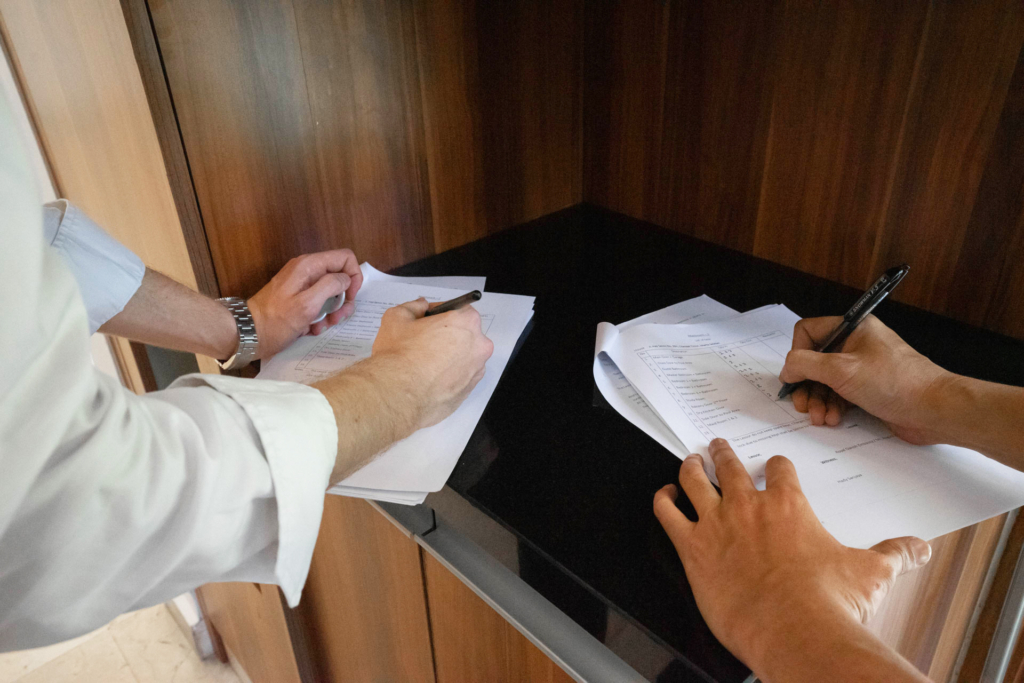
One of the most surprising things many expats discover upon arriving in Jakarta is the rental contract terms. You’ll often be required to sign a minimum 24-month lease, with upfront payment, and without an early termination clause to protect you from any unforeseen circumstances that may arise during your two-year stay.
Yes, it’s true—it’s common practice here to pay the entire rent upfront. Leaving the property early usually means forfeiting your payment, as getting a refund from your landlord is highly unlikely. Short-term rentals for standalone houses are almost unheard of, and unless you’re working for an Embassy or another organization with Diplomatic privileges, early cancellations are not an option.
In some cases (fingers crossed), if you need to leave earlier than expected, the landlord might allow you to sublet the property to reclaim the unused portion of your rent. However, enforcing this sublease clause is often easier said than done.
So, yes, it’s a long-term commitment—much like a marriage. You’ve got to stick with the house you chose, for better or worse. There’s no “divorcing” your property if things go wrong! If you encounter any unexpected inconveniences during your stay, you’ll need to be prepared to handle it calmly and work with the landlord to get it resolved. In most cases, landlords are accommodating when it comes to maintenance issues, but be prepared for things to move at a slower pace, and don’t expect everything to be fixed to “Western standards” right away. Patience and compromise are key!
Is It Safer to Have a Standalone or Gated House?
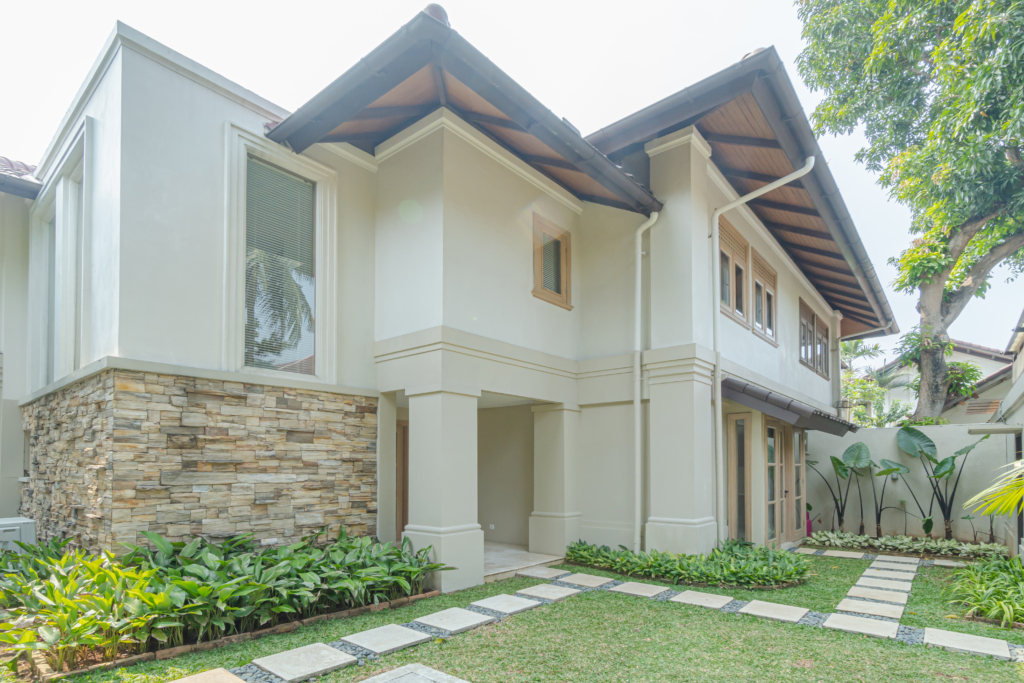
You might be wondering whether it’s safer to live in a standalone house or a gated community. In general, Jakarta is a very safe city—speaking from over a decade of personal experience. While I’ve encountered minor incidents, it’s nothing compared to what can happen in Europe or North America. Most areas in Central and South Jakarta are relatively secure. As with any big city, it’s best to avoid walking around after midnight, but taxis here are very reliable.
Gated houses do provide 24/7 security, which some expats feel is essential for their peace of mind. They say it helps them feel safe and more at ease. Personally, I don’t think 24/7 security is a necessity in most expat areas, as these neighbourhoods are already quite safe. My advice? When you go to bed, lock your doors and consider installing CCTV at home. That should be more than enough for your security needs.
If you hear about robberies or thefts in expat homes, it’s often due to issues with domestic staff rather than random break-ins. So, it’s important to be selective when hiring household help (but that’s a discussion for another time).
In conclusion, whether you choose a standalone house or a gated community won’t make much difference in terms of safety. However, if you have young children and want neighbours with kids for them to play with, I’d recommend looking at compound houses, as they tend to foster more of a sense of community.
Expect Old Houses in the Rental Market
Most houses available for rent are older properties that landlords inherited from their parents or grandparents. With sky-high land prices and the steep cost of construction, very few new houses are being built for the expatriate rental market. So, if you’re expecting a modern house at a bargain price, THINK AGAIN.
Newcomers often underestimate the cost of housing in this city. Let me say it again: Rents in Jakarta are not cheap! A decent house (not – new house) in a good location will run you at least around USD 3,000 or more per month. And that’s usually just the rent. Additional expenses like security, trash collection, pool, garden, and AC maintenance are typically added as compound fees, on top of utility bills for water, electricity, and cooking gas. All these extra costs can quickly add up, making it comparable to renting a nice bungalow in Europe!.
Some landlords are willing to upgrade certain features, like the kitchen or bathroom tiles, but don’t expect a state-of-the-art renovation just because you asked. The house will likely get a fresh coat of paint, deep cleaning and appliances will be provided, but in some cases, you might also find that the air conditioning units is as old as your grade 11 teenager!! As the saying goes, “If it ain’t broken, why change it?” You can request the landlord to replace the AC units, but most will likely tell you they’ll only do so if the unit stops working.
When it comes to negotiations, it’s important to pick your battles. Set your priorities and be willing to compromise. Good houses are hard to come by, and when you find one that works, try to cooperate. An endless list of improvement requests won’t necessarily work in your favour.
Housing Quality and Maintenance
Indonesia’s location on the equator means there are only two seasons: dry and wet, with high humidity throughout the year. This climate causes many houses to develop cracks and leaks after just a few years. The building standards may not always meet European expectations, and the humidity speeds up the wear and tear on homes.
That said, not all houses are the same. Some landlords do invest in quality construction and have dedicated maintenance teams that can promptly address any issues that arise. However, as mentioned earlier, plumbing problems and other maintenance concerns are common in many homes.
The most important thing is to ensure your landlord has a reliable maintenance team or check if your local housing agent or relocation service providers can support for repairs. Having access to dependable help can greatly improve your quality of life, as dealing with housing issues can be overwhelming and frustrating.
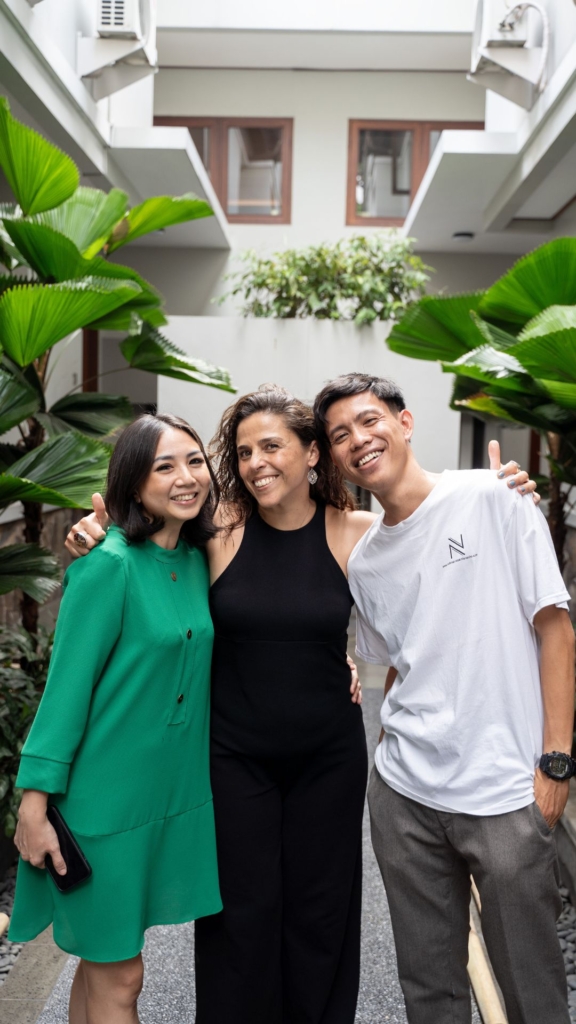
Final Thoughts: Brace Yourself!
Even if you’ve done your homework and researched housing options before moving to Jakarta, it may not match your expectations. The pictures of homes can be quite different from reality. The best advice? Keep your expectations in check, and stay objective about what you need versus what you want. Happy house hunting!

Papa Berlin
Jerome Prijatman or knows as "Papa Berlin" a German-born author with a rich cultural background, having an Indonesian father and a German mother. With over 15 years of living experience in Indonesia, Papa Berlin brings a unique perspective to his writing. His background in hospitality and Design management further enhances his insights, making him a valuable contributor to Noble Asia's content.
